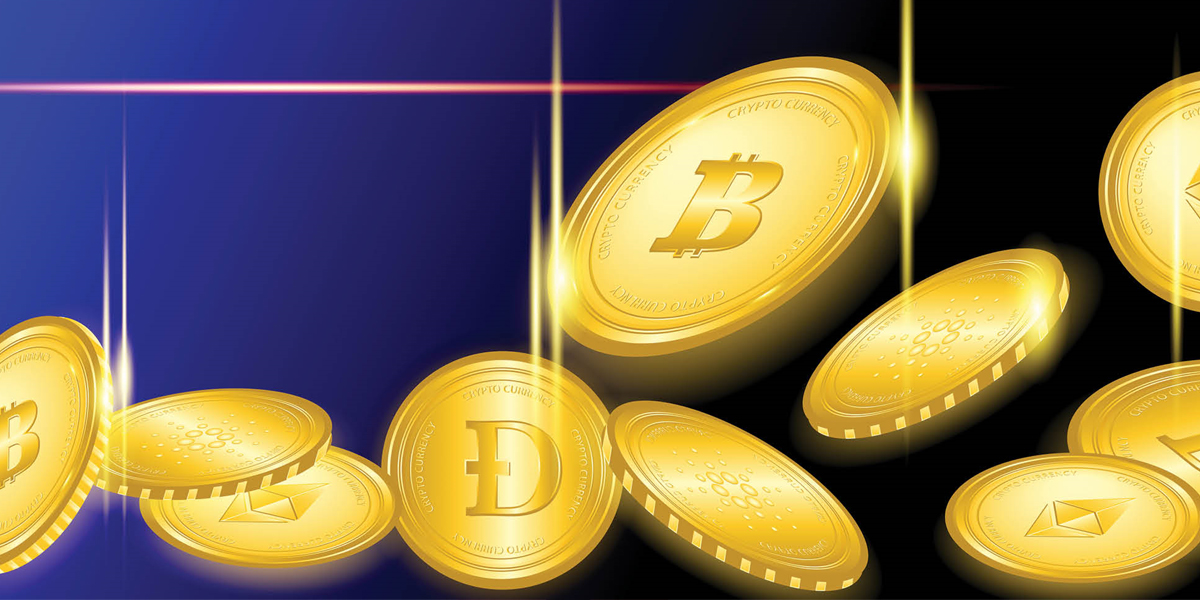Synopsis
A VIABLE PROSPECT!

You’ve probably heard of how efficient and easy managing your finances has become these days with the world adopting convenient mediums such as e-banking and digital money. As the world’s economy evolves, it finds newer and more innovative means of operating. Cryptocurrency is one of these modern-day methods that the world has adopted, adding to that the sudden interest people all around the world have shown, its popularity has skyrocketed. Countries such as Singapore, the UK, Japan and Canada have proactively recognised and regulated the trade and exchange of crypto although most of these jurisdictions demand a set of rules to be followed as a regulatory precaution. The mention of cryptocurrency can be tracked all the way back to the 1980s when American cryptographer David Chaum attempted to persuade banks to embrace the concept of digital currency but failed.
Knowledge and interest about it became more widespread nearly decades later around 2008 when the idea was developed to become a reality and the first decentralised digital currency known as the Bitcoin was introduced by an anonymous programmer, or a group of programmers, under the name of Satoshi Nakamoto. While initially, this primitive version was nothing more than an inert implementation of blockchain technology, over the years it became a subject of keen interest not only for investors but also among the mainstream masses.
Talk and development of cryptocurrency did eventually reach a standstill for a few years until 2011 when alternate cryptocurrencies such as Litecoin and Ethereum began to appear and more sites started accepting them. The popularity has made many well-known names such as Elon Musk, Bill Gates and Paris Hilton make investments and vouch for the networks, naturally causing the topic to make headlines and be on everyone’s radar.
As the crypto market expands across the globe, Pakistan is no exception to its influence, especially with the system being endorsed by social media celebrities such as Waqar Zaka, who has been promoting the use of Bitcoin across his social media platforms. A large number of individuals in the country have turned to apps such as Binance and Kraken for fiat-to-crypto exchange, while some prefer to operate through companies and entities that offer the use of crypto as a vehicle of investment. A report by the Federation of Pakistan Chamber of Commerce and Industry (FPCCI) discussed how the virtual system thrived in the duration of the Covid-19 pandemic, recording a $20 billion of crypto value in the year 2020/21, which was a hike of 711 per cent.
Despite the rapid increase in the number of investors in favour of adopting this system, cryptocurrency has still faced disapproval from a significant number of individuals and institutions, including a committee formed by the deputy governor of the State Bank of Pakistan (SBP), claiming that allowing it could lead to an outflow of foreign exchange and illicit money. A proposition was made to ban any and all activities related to this decentralised and encrypted system of financial investments and transactions.
The Securities and Exchange Commission of Pakistan (SECP) also warns the public to exercise extreme caution when dealing with any entities offering means of financial operations in cryptocurrencies, as they have not been authorised or been given approval.
Our state views the system of cryptocurrency with wariness, as they believe it enables the citizens of a country to undermine government authority by circumventing capital controls imposed by it. This fear is ill-founded; an excerpt from a Chainalysis report in 2019 claimed that the criminal activity represented 2.1 per cent of all the cryptocurrency transaction volume (roughly $21.4 billion worth of transfers). In 2020, the criminal share of all cryptocurrency activity fell to just 0.34 per cent ($10 billion in transaction volume).
According to the UN, it is estimated that between 2 per cent and 5 per cent of global GDP ($1.6 to $4 trillion) annually is connected with money laundering and illicit activity. This means that criminal activity using cryptocurrency transactions is much smaller than fiat currency and its use is going down year by year.
Many are also of the opinion that imposing a ban on cryptocurrencies and the technologies behind them will be pointless since you can’t wish away the internet or get rid of blockchain. Making an attempt to sanction crypto would be essentially futile or even counterproductive.
What the state should be primarily concerned about is protecting crypto consumers who are vulnerable to the risk of being scammed by pyramid schemes that are promoted under the presence of innovative investment opportunities. Currently, the state offers no protection to investors to protect them from any financial losses in case the virtual currencies fail or the companies promoting them go out of business.
Although policymakers are gradually beginning to form opinions that favour the adoption of cryptocurrency in Pakistan, institutions such as the State Bank of Pakistan still impress upon the fact that the cons of crypto usage significantly outweigh its pros.
Catch all the Breaking News Event and Latest News Updates on The BOL News
Download The BOL News App to get the Daily News Update & Live News.








 Read the complete story text.
Read the complete story text. Listen to audio of the story.
Listen to audio of the story.